Power supply has the potential to make or break your holiday. There are several individual and related power sources you may need to consider when setting up your rig, and it can be difficult to decide which is just right for your specific needs and camping style.
Most of your camper trailer’s appliances (such as lights, TV and so on) will run on either (or both) 240V mains power or 12V battery power. Others, such as your cooktop, barbecue and perhaps your heater will most likely require gas, while a generator or space heater may use diesel.
All these power sources need to be understood and considered carefully to ensure a successful camping trip — from when and where you’ll access 240V power if needed and how you’ll power your 12V batteries to where and how you’ll source and carry your additional fuels such as gas or diesel.
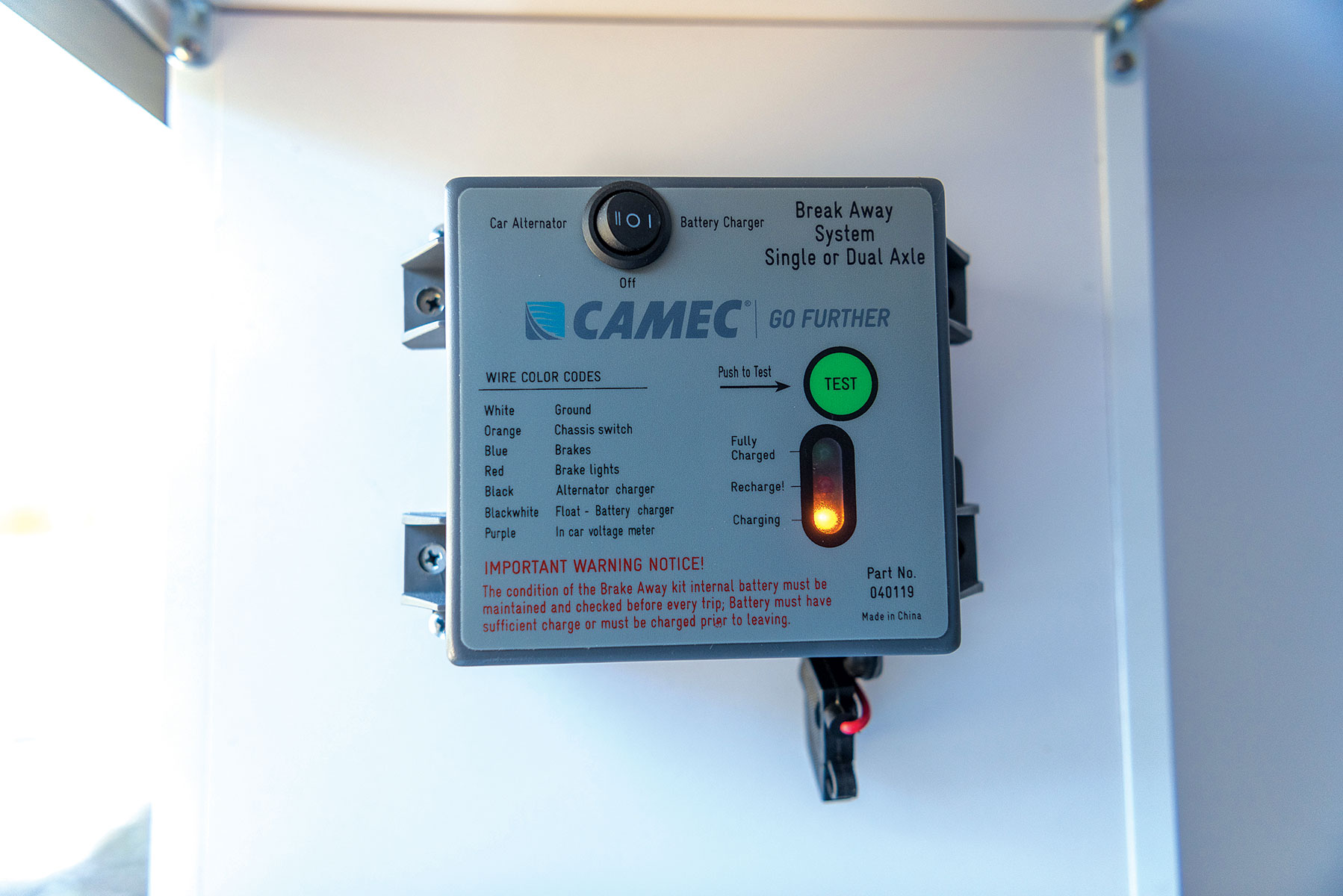


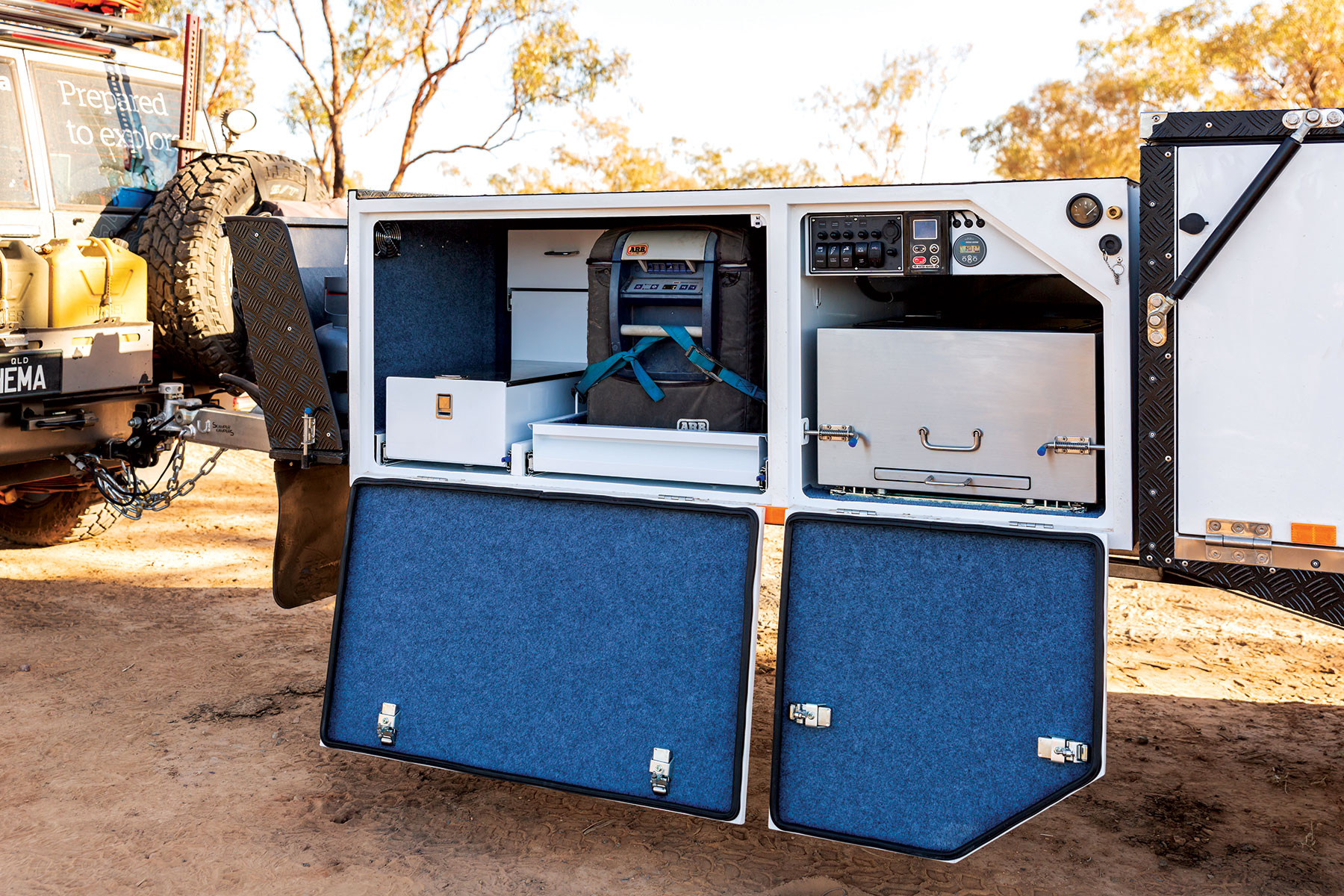
Power sources
240 volt
Whether you have a stock-standard, entry-level blacktop tourer or a top-of-the-range, fully customised offroader, your camper will be built to operate on 240V mains power. This is the same power your house runs on, and the power available from caravan parks. When you’re hooked up to mains power, you won’t be depleting your onboard power source (12V battery power) and can run any appliances you may have — even high-draw items such as coffee machines or hair dryers — without issue.
12 volt
Once you leave the caravan park and head for national park campsites or even more remote areas, you’ll need to rely on your 12V battery setup. This will differ between campers, depending on the system optioned during the build. We all have different camping styles, and therefore power needs, and therefore the 12V battery setup can vary wildly from a single 90Ah deep-cycle battery to a 1000Ah lithium setup. But, in principle, each one works the same way.
The 12V batteries are a power storage device that, when correctly charged, can power a range of modern appliances for a limited period of time. This includes items such as lights, TVs and radios, but excludes high-draw items. Once the power from the 12V batteries has been depleted through use, they will need to be topped up.
Gas
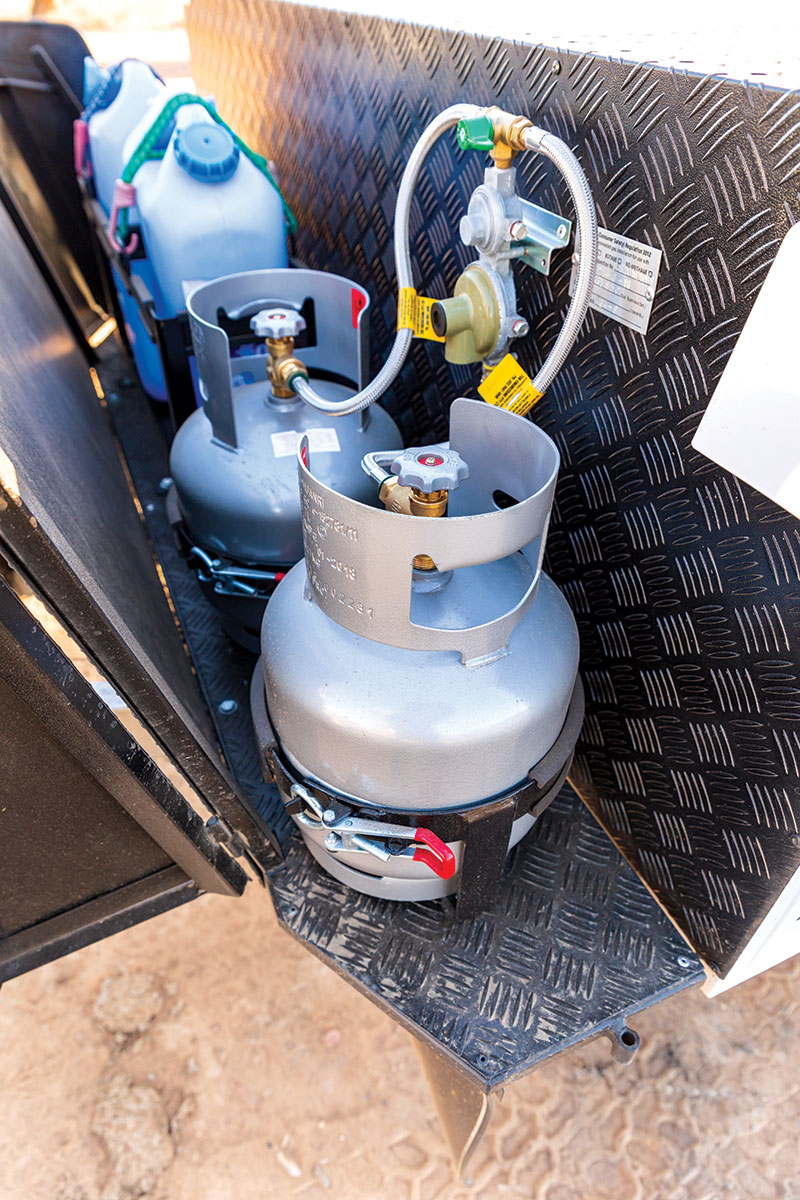
While it is possible (and becoming a popular option) for a camper to run a gasless system where LPG is not required, the vast majority of campers feature at least one gas appliance — if not more. These include gas cooktops, barbecues and even gas heaters. If your caravan has gas appliances, you’ll need to carry one or more gas cylinders with you, depending on your needs. These are exactly the same as the gas cylinders you’d use for your barbecue at home and can be easily swapped or refilled when required.
Diesel
Diesel appliances are less common than gas; however, you may choose to run a diesel generator to supplement your power sources, or even a diesel space heater to keep warm. If so, you’ll need to source and carry diesel with you on your trips. Diesel is usually carried in jerry cans on the outside of the trailer or vehicle.
Petrol
If you run some diesel appliances and also tow with a diesel vehicle, then you’ve got one less power source to think about. However, if your tow tug runs on unleaded petrol, you’ll need to consider your fuel requirements during every trip. If you don’t have a long-range fuel tank, or you’re doing long stretches in remote areas, you’ll need to carry extra fuel with you to ensure you don’t run out and become stranded.
Recharging
Finding effective and efficient methods to charge your 12V batteries is vital and the way that each of these charging options fits into your overall energy management system is important. The central element of any RV power system is the battery and all other energy management equipment, such as solar panels or battery chargers, should work closely with it.
Battery charger
A battery charger is the obvious means to charge your 12V batteries. A charger essentially reverses the chemical reaction that takes place within a battery when an appliance is drawing power from it, which charges it instead of depleting it. However, most chargers require 240V mains power to work and so are not very useful if travelling away from civilisation for long periods of time.
Solar Panels
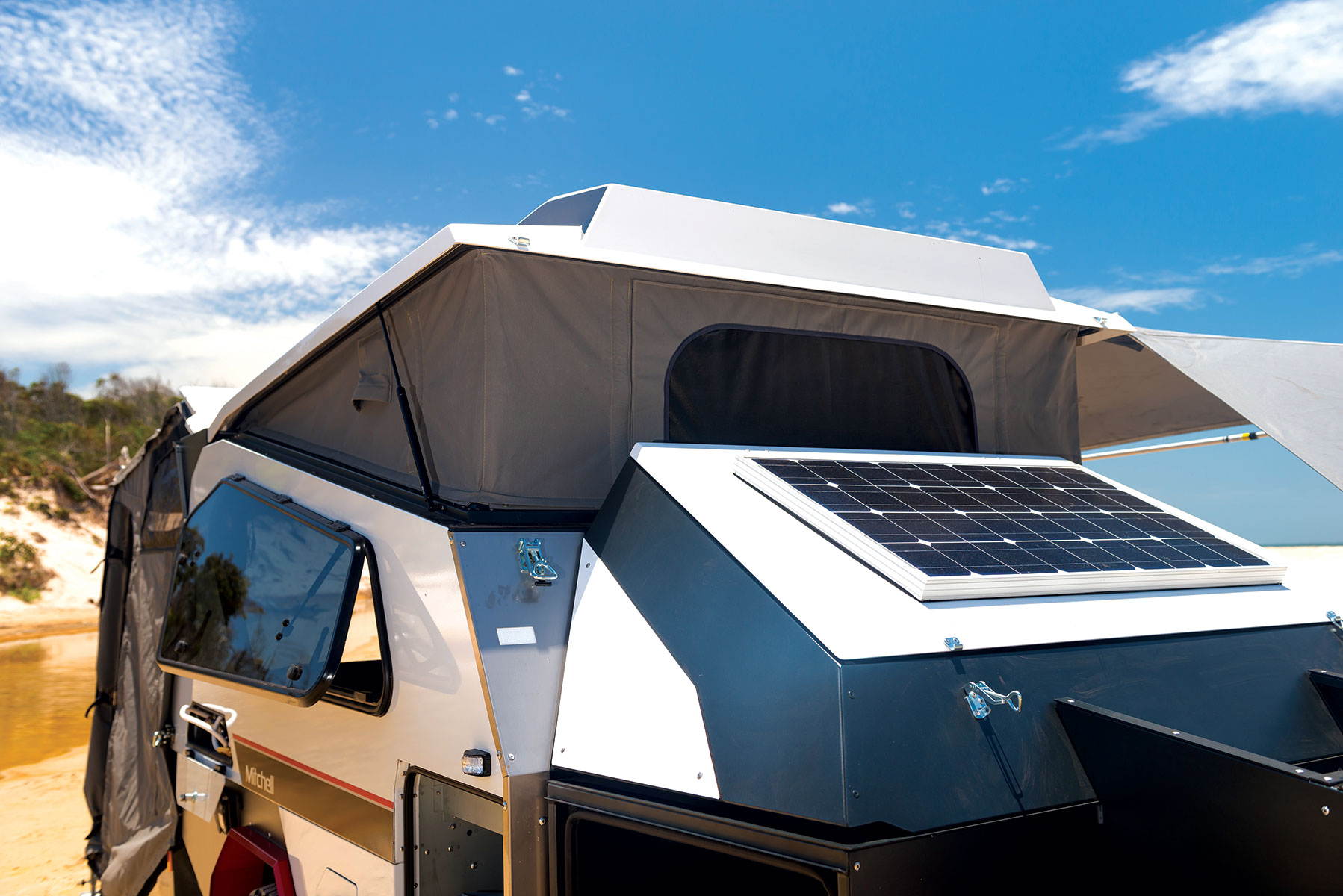
Solar panels convert readily available sunlight to electrical energy which is then managed by a solar regulator and stored in a deep-cycle battery. 12V DC electrical appliances can be run from the battery while an inverter will be needed for 240V AC appliances.
Solar panels can be a great way to recharge your 12V batteries while you’re away from home as solar power creates no noise, no fumes and are environmentally sustainable. Also, solar panels have basically no costs after the initial setup. Even better, a well-managed solar system is more than enough to power most standard 12V usage.
The downside, however, is that the efficiency of your panels is reliant on weather and, if you have fixed-mounted panels, the position of your trailer.
Vehicle alternator
Camper trailer ‘house’ (12V) batteries can be set up to charge from the tow vehicle’s alternator while the van is under tow. A plug called an Anderson Plug allows energy from the tow vehicle to flow to the trailer's batteries when the vehicle is running to supply charge. But, due to the length of the cable required for this setup, voltage drop can be an issue, so the method is not 100 per cent reliable. However, there are aftermarket devices available, such as a booster, which minimise voltage drop.
Generators
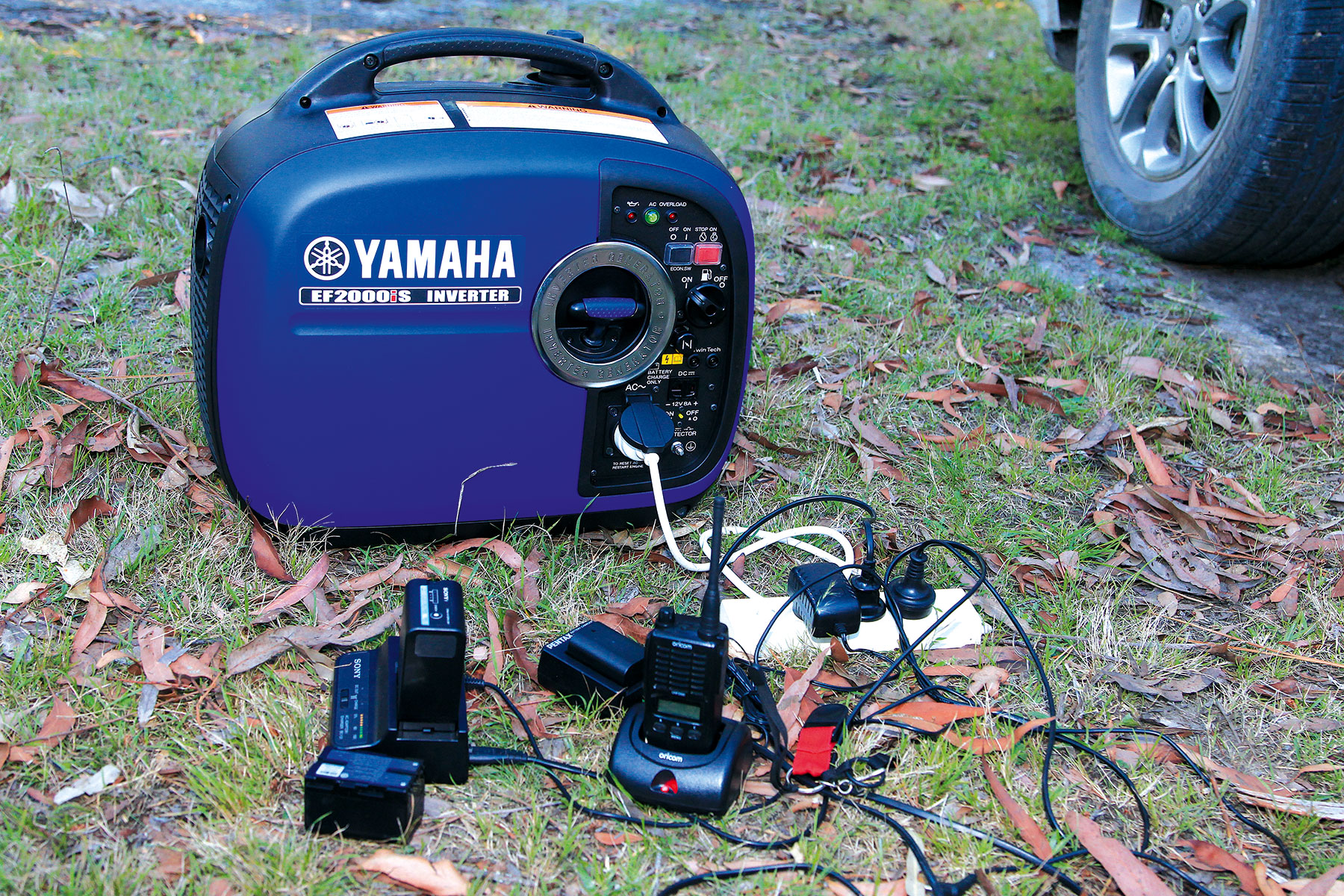
Generators are a reliable, albeit noisy and expensive, way to get your power needs met. They're generally a last-resort option (due to the above factors) but they can certainly be a useful addition to any power setup. The initial cost of a generator depends largely on its size, and you'll need to factor in fuel and servicing to the overall long-term cost. It’s also worth keeping in mind that generators are now banned in many national parks and free campsites due to their impact on other campers.
A generator creates electricity from a gas-powered engine which turns an on-board alternator to generate electrical power. Power outlets on the unit allow you to plug extension cords, electric-powered tools and appliances including battery chargers into it.
Quick tip
Always make sure the valves at the top of your gas bottles are closed before you drive away from camp.
THE NEXT STEP
Are you ready to experience the freedom of the open road? Don't wait - Find your dream getaway now!
RELATED ARTICLES:
Understanding power consumption for camper trailers: essential guide and tips




